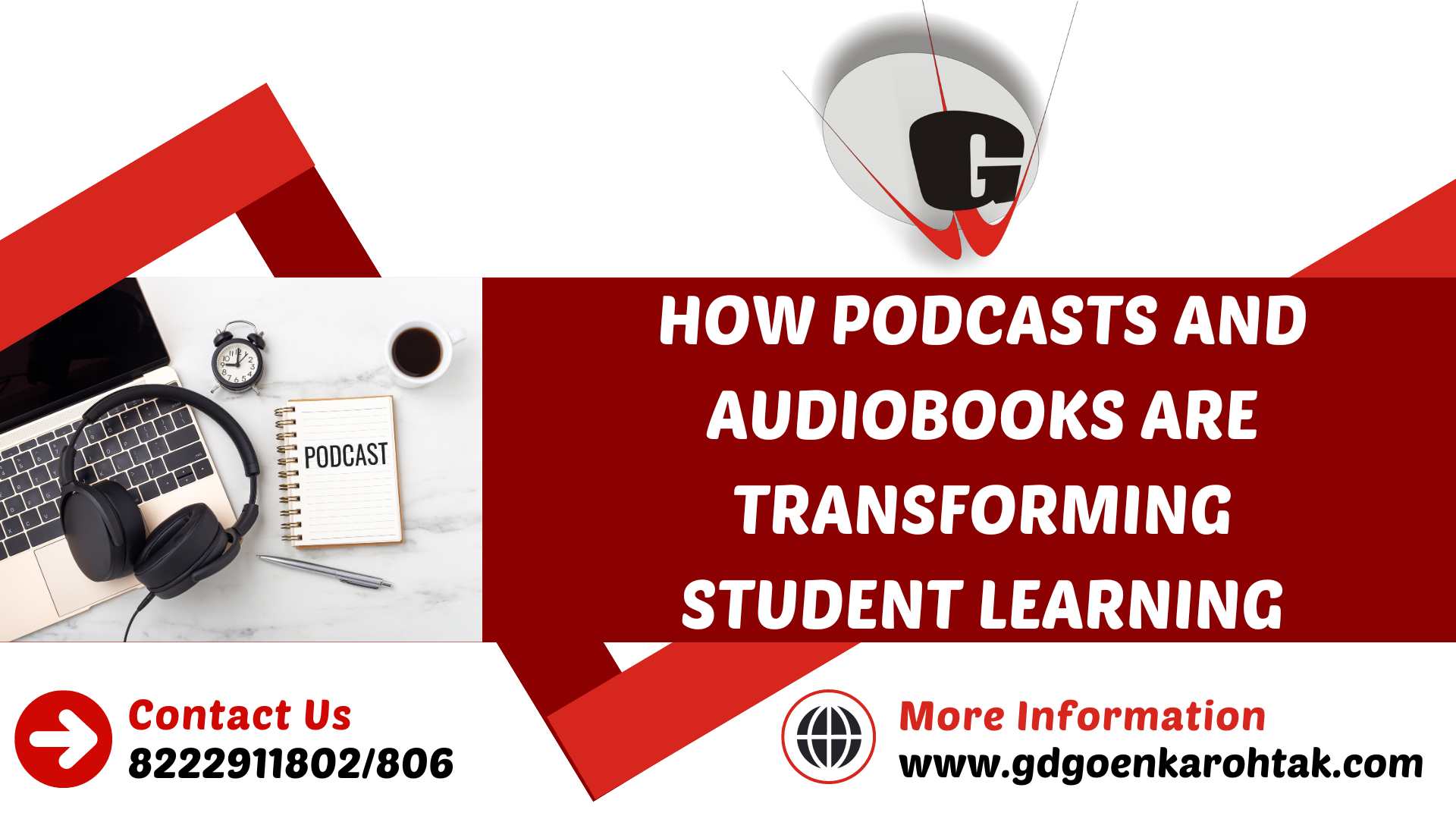In the dynamic realm of education, the integration of podcasts and audiobooks is sparking a paradigm shift in how students approach learning. By leveraging the power of audio, students can break free from the confines of traditional learning methods and tap into a wealth of information and inspiration at their fingertips. Whether it’s listening to a thought-provoking podcast on a commute or delving into an immersive audiobook during a study session, these mediums offer unparalleled flexibility and versatility. This blog explores the various reasons why educational podcasts and audiobooks are important for school students’ learning and development.
Enhancing Learning Experience:
Educational podcasts and audiobooks offer an interactive learning experience that goes beyond traditional classroom teaching methods. By listening to experts in various fields, students can gain a deeper understanding of complex topics or explore new subjects outside their curriculum. This diverse range of knowledge helps broaden their horizons, fostering critical thinking skills.
Flexibility in Learning:
One notable advantage of podcasting or using audiobooks is the flexibility it offers to students. Unlike traditional textbooks or printed materials, audio resources can be accessed on smartphones, tablets, or computers at any time. Whether commuting to school or engaged in extracurricular activities, students can conveniently utilize these resources without being tied down to physical textbooks.
Improved Language Skills:
According to specialists at GD Goenka International School, Rohtak, listening to podcasts and audiobooks enhances language skills such as vocabulary development, pronunciation, intonation, and comprehension abilities. By exposing themselves to different accents and narratives from around the world through audio content tailored for education purposes, students build linguistic fluency while enjoying an immersive learning experience.
Encouraging Active Listening:
Podcasts encourage active listening by presenting information in conversational styles that capture attention effectively. By actively engaging with the content rather than passively reading it from a textbook or screen, students develop better focus levels which ultimately leads to improved retention of information discussed within each episode.
Catering to Different Learning Styles:
Every student has unique learning preferences; some thrive through visual aids while others prefer auditory input. Educational podcasts cater specifically to auditory learners who benefit most from hearing explanations rather than visual demonstrations. By providing alternative learning pathways, podcasts and audiobooks ensure that all students can access information in a way that suits their individual learning style.
Supplementing Classroom Education:
Educational podcasts and audiobooks supplement classroom education by offering additional resources beyond the limitations of textbooks. These resources can act as valuable supplements to the curriculum, helping students understand complex concepts more effectively or reinforcing topics covered in class.
Improved Multitasking Abilities:
Podcasts and audiobooks enable students to multitask while learning. By listening to educational content during activities like exercising, chores, or commuting, students maximize their time by combining leisure activities with educational enrichment. This flexibility allows them to make the most of their day while still engaging in productive learning experiences.
Conclusion:
In conclusion, educational podcasts and audiobooks have become invaluable tools for school students’ education. Their flexibility, interactive nature, ability to cater to different learning styles, and convenience make them an essential part of modern-day education. By embracing these audio resources as supplementary materials alongside traditional teaching methods, Best CBSE schools in India empower students with enhanced knowledge acquisition and critical thinking skills necessary for success in today’s information-rich world.


